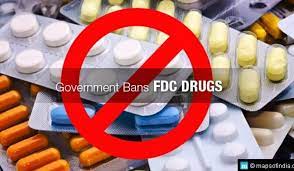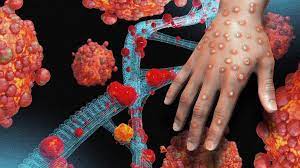FDC MEDICINES
Why in News?:
The Central Government of India has issued a gazette notification banning 14 fixed-dose combination (FDC) medicines commonly used to treat cough, fever, and infections.
The ban, which takes immediate effect, follows recommendations from an expert committee appointed to assess the efficacy of these drug combinations.
What are FDC Medicines?:
According to the Central Drugs Standard Control Organisation (CDSCO), FDCs refer to products containing one or more active ingredients used for a particular indication(s).

|
Central Drugs Standard Control Organisation (CDSCO)? The CDSCO is the Central Drug Authority for discharging functions assigned to the Central Government under the Drugs and Cosmetics Act 1940. Major Functions:
Drug Controller General of India (DCGI) It is under the Ministry of Health & Family Welfare.
|
Reason for the Ban:
The ban follows the recommendations of the expert committee and the Drugs Technical Advisory Board.
The committee concluded that the banned FDCs lack therapeutic relevance and may pose risks to human beings.
Challenges of FDC:
Increased Risk of Side Effects:
Combining multiple active ingredients in FDC drugs can lead to a higher risk of adverse drug interactions and increased susceptibility to side effects.
Some patients may experience heightened sensitivity or allergic reactions to one or more components of the FDC drug, which may be difficult to identify and manage due to the fixed combination.
Regulatory Challenges:
Regulating FDC drugs can be challenging due to the complexities associated with evaluating the safety and efficacy of multiple active ingredients in a single formulation.
Overuse and Misuse:
FDC drugs can contribute to overuse and misuse of medications. Patients may unknowingly consume multiple active ingredients unnecessarily or in inappropriate combinations, leading to potential health risks.
Lack of Evidence-based Clinical Data:
Some FDC drugs may have been approved based on limited or insufficient clinical evidence supporting their efficacy and safety profiles




.jpg)


.jpg)
.jpg)





